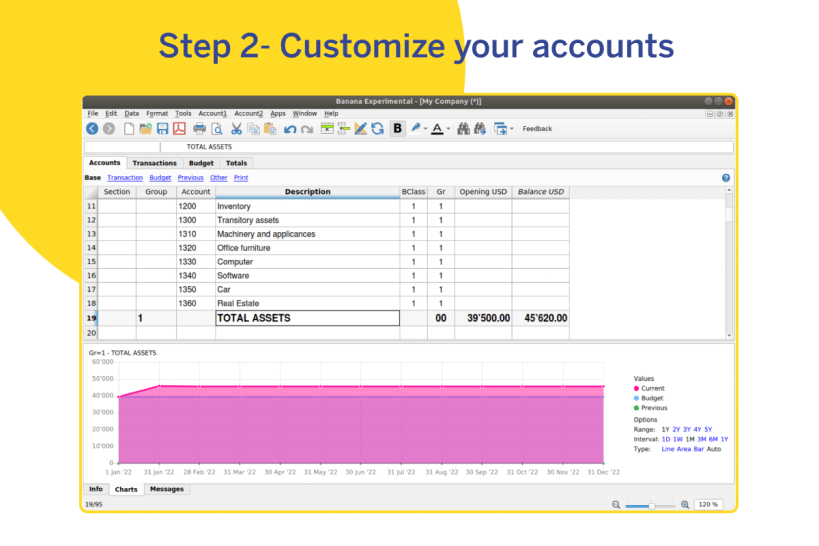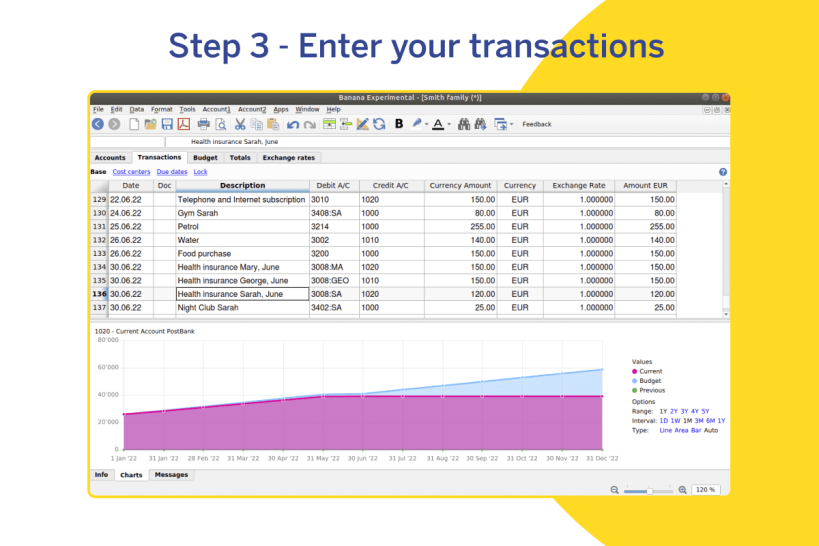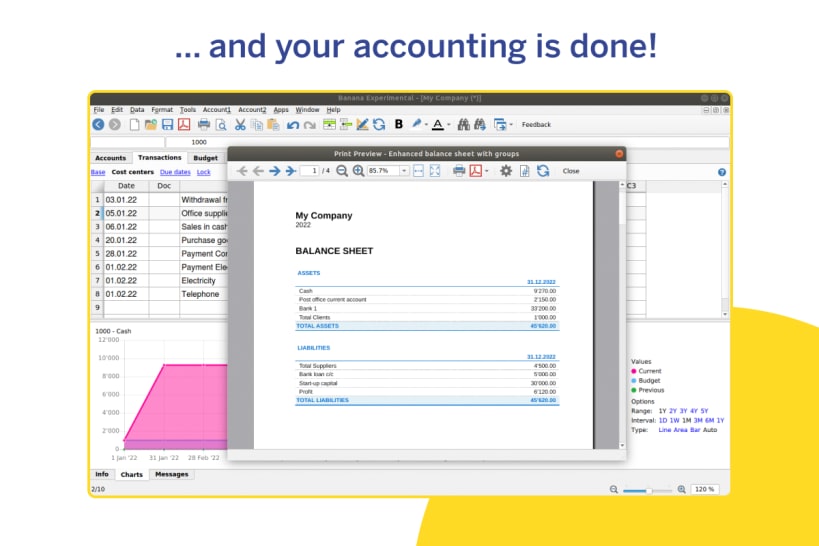





Use the double-entry method to quickly create highly reliable financial forecasts, complete with liquidity plan and projection for balance sheet and income statement. Track assets, liabilities, income and expenses and compare with plan. The free version allows you to discover why this innovative Swiss financial software, similar to Excel, has become an irreplaceable tool for accountants, entrepreneurs and individuals in over 180 countries.
Quick to start: select the application, choose a template, customize the accounting plan, enter forecast or accounting transactions and instantly visualize results.
Install the software and freely use Cash Manager and Time Sheet. With the other applications, you can create an unlimited number of files, each with up to 70 transactions. The affordable and perpetual license lets you continue using your existing files with no limits.
Spreadsheet Applications for forecasting and accounting:
Spreadsheet Applications for productivity:
Javascript API lets any programmer create extensions for invoice layouts, reports or converters for importing any e-bank statements.
Languages: English, Dutch, French, German, Italian, Portuguese, Simplified Chinese, Spanish.
Find out more: https://www.banana.ch/en/features
This snap hasn't been updated in a while. It might be unmaintained and have stability or security issues.
You are about to open
Do you wish to proceed?
Thank you for your report. Information you provided will help us investigate further.
There was an error while sending your report. Please try again later.
Snaps are applications packaged with all their dependencies to run on all popular Linux distributions from a single build. They update automatically and roll back gracefully.
Snaps are discoverable and installable from the Snap Store, an app store with an audience of millions.

Snap is available for Red Hat Enterprise Linux (RHEL) 8 and RHEL 7, from the 7.6 release onward.
The packages for RHEL 7, RHEL 8, and RHEL 9 are in each distribution’s respective Extra Packages for Enterprise Linux (EPEL) repository. The instructions for adding this repository diverge slightly between RHEL 7, RHEL 8 and RHEL 9, which is why they’re listed separately below.
The EPEL repository can be added to RHEL 9 with the following command:
sudo dnf install https://dl.fedoraproject.org/pub/epel/epel-release-latest-9.noarch.rpm
sudo dnf upgrade
The EPEL repository can be added to RHEL 8 with the following command:
sudo dnf install https://dl.fedoraproject.org/pub/epel/epel-release-latest-8.noarch.rpm
sudo dnf upgrade
The EPEL repository can be added to RHEL 7 with the following command:
sudo rpm -ivh https://dl.fedoraproject.org/pub/epel/epel-release-latest-7.noarch.rpm
Adding the optional and extras repositories is also recommended:
sudo subscription-manager repos --enable "rhel-*-optional-rpms" --enable "rhel-*-extras-rpms"
sudo yum update
Snap can now be installed as follows:
sudo yum install snapd
Once installed, the systemd unit that manages the main snap communication socket needs to be enabled:
sudo systemctl enable --now snapd.socket
To enable classic snap support, enter the following to create a symbolic link between /var/lib/snapd/snap and /snap:
sudo ln -s /var/lib/snapd/snap /snap
Either log out and back in again or restart your system to ensure snap’s paths are updated correctly.
To install banana-accounting, simply use the following command:
sudo snap install banana-accounting
Browse and find snaps from the convenience of your desktop using the snap store snap.

Interested to find out more about snaps? Want to publish your own application? Visit snapcraft.io now.